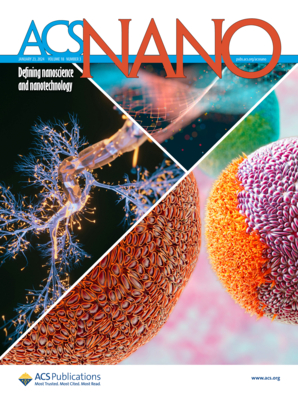Crystallographic Engineering in Micron-Sized SiOx Anode Material Toward Stable High-Energy-Density Lithium-Ion Batteries
IF 15.8
1区 材料科学
Q1 CHEMISTRY, MULTIDISCIPLINARY
引用次数: 0
Abstract
The SiOx anode exhibits a high specific capacity and commendable durability for lithium-ion batteries (LIBs). However, its practical application is hindered by significant volumetric fluctuations during lithiation/delithiation, alongside a metastable nature, which induces mechanical instability and irreversible lithium consumption, ultimately impairing long-term capacity retention in full-battery cell configurations. In this study, we present a phase-engineering approach designed to improve the structural stability of SiOx anodes for LIB applications. By incorporating lithium fluoride, amorphous SiOx undergoes partial transformation into a quartz-like phase, which enhances mechanical integrity and mitigates irreversible lithium loss. This modified anode demonstrates significantly improved stability and prolonged cycle lifespan. Through a combination of multiscale simulations and in situ characterizations, we elucidate the stabilization mechanisms conferred by the quartz phase, providing critical insights into the role of SiOx’s crystal structure in influencing degradation pathways. This work introduces an accessible and efficient method for controlling the crystallinity of SiOx, offering a practical solution to enhance the durability of high-energy-density LIBs.

用于稳定高能量密度锂离子电池的微米尺寸SiOx负极材料的晶体学工程
SiOx阳极在锂离子电池(LIBs)中表现出高比容量和值得称赞的耐用性。然而,其实际应用受到锂化/消瘦过程中显著的体积波动以及亚稳性质的阻碍,亚稳性质会导致机械不稳定和不可逆的锂消耗,最终损害全电池配置下的长期容量保持。在这项研究中,我们提出了一种相位工程方法,旨在提高锂离子电池应用中SiOx阳极的结构稳定性。通过加入氟化锂,无定形SiOx部分转变为类石英相,增强了机械完整性并减轻了不可逆的锂损失。这种改进的阳极表现出显著提高的稳定性和延长的循环寿命。通过多尺度模拟和原位表征的结合,我们阐明了石英相赋予的稳定机制,为SiOx的晶体结构在影响降解途径中的作用提供了关键的见解。本研究介绍了一种控制SiOx结晶度的有效方法,为提高高能量密度lib的耐久性提供了一种实用的解决方案。
本文章由计算机程序翻译,如有差异,请以英文原文为准。
求助全文
约1分钟内获得全文
求助全文
来源期刊

ACS Nano
工程技术-材料科学:综合
CiteScore
26.00
自引率
4.10%
发文量
1627
审稿时长
1.7 months
期刊介绍:
ACS Nano, published monthly, serves as an international forum for comprehensive articles on nanoscience and nanotechnology research at the intersections of chemistry, biology, materials science, physics, and engineering. The journal fosters communication among scientists in these communities, facilitating collaboration, new research opportunities, and advancements through discoveries. ACS Nano covers synthesis, assembly, characterization, theory, and simulation of nanostructures, nanobiotechnology, nanofabrication, methods and tools for nanoscience and nanotechnology, and self- and directed-assembly. Alongside original research articles, it offers thorough reviews, perspectives on cutting-edge research, and discussions envisioning the future of nanoscience and nanotechnology.
 求助内容:
求助内容: 应助结果提醒方式:
应助结果提醒方式:


